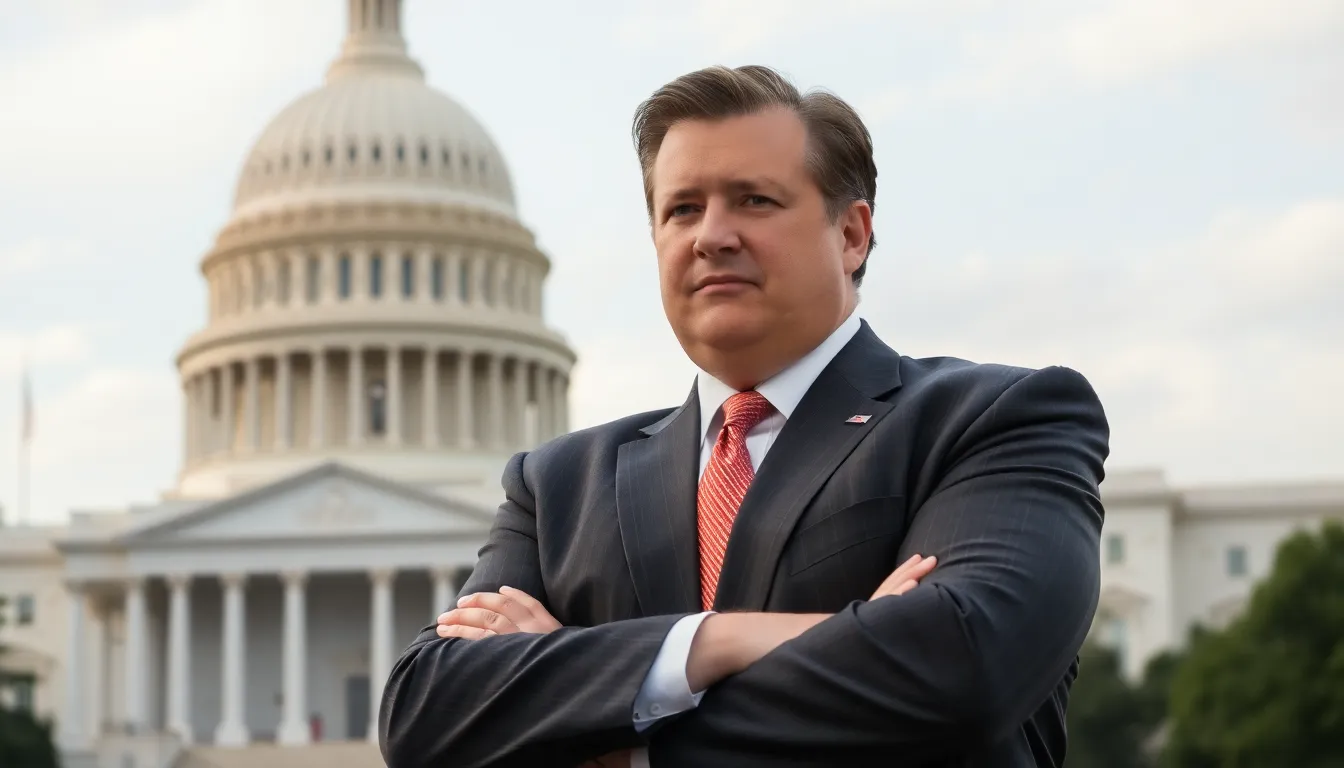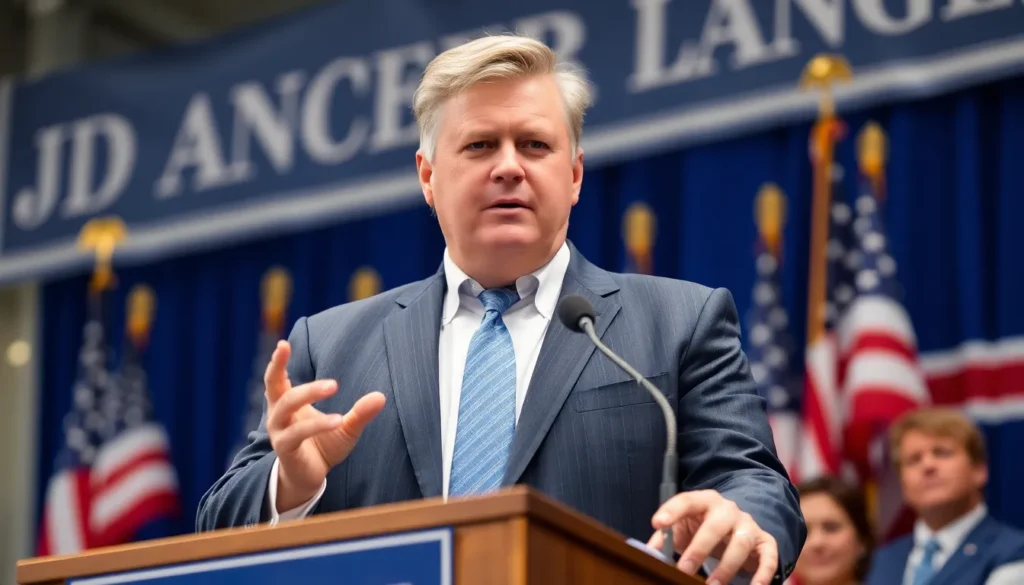JD Vance has made a name for himself in the world of politics and literature, but many people wonder about his time in the military. Did this rising star don a uniform and serve his country, or is he more of a “couch general”? With a background that includes a bestselling memoir and a Senate seat, his military service—or lack thereof—could reveal a lot about the man behind the headlines.
Table of Contents
ToggleOverview of JD Vance
JD Vance gained recognition as an author and politician. His memoir, “Hillbilly Elegy,” achieved bestseller status, shaping discussions about rural America. He entered politics and secured a Senate seat in Ohio amidst a complex landscape. Inquiries about his military background persist, especially regarding perceptions of him as a “couch general.”
Vance’s public persona often aligns with his literary achievements. He presents himself as an advocate for working-class citizens facing economic challenges. Supporting the notion of patriotism, he actively engages with military issues, which may prompt questions about his own service.
Despite the intrigue surrounding his military experience, Vance did not serve in the armed forces. He expresses respect for those who did serve. The absence of military service in his background contrasts sharply with the expectations of some voters. Engaging with these aspects can help clarify the public’s understanding of his motivations and values.
Political opponents frequently leverage his lack of military experience in their critiques. Highlighting this gap might affect perceptions among constituents seeking a candidate with a military background. Vance addresses these narratives, emphasizing his connection to veterans and commitment to supporting the military.
Understanding Vance’s journey from a troubled upbringing to national politics provides context. His story resonates with many, challenging traditional narratives within political discourse. The interplay between his accomplishments and the questions about military service reveals deeper societal reflections regarding leadership and experience.
Military Background

JD Vance’s military background plays a significant role in discussions about his public perception. Investigations into his life reveal a lack of military service, which contrasts with some expectations in the political arena.
Early Life and Education
Vance grew up in Middletown, Ohio. His upbringing was marked by challenges that shaped his worldview. After high school, he attended Ohio State University, where he earned a bachelor’s degree in political science. He later pursued a law degree at Yale Law School, furthering his educational credentials. Those experiences, particularly his time at Yale, influenced his perspectives on class and opportunity.
Enlistment and Service Details
Vance did not enlist in the military. His life path diverged significantly from those of many contemporaries who joined the armed forces. Political opponents often highlight his absence of service as a point of contention. Vance’s engagement with military issues stems from his advocacy for veterans rather than personal experience. This distinction prompts scrutiny among voters, particularly those who value military service in their leaders.
Public Perception of His Military Experience
Vance’s lack of military service significantly impacts public perception. Many voters expect candidates to have some form of military experience, which can enhance their credibility. Critics often label him a “couch general,” suggesting he speaks on military issues from a distance. His political opponents emphasize this aspect in their campaigns, creating narratives that question his commitment to veterans and military families.
Constituents seeking relatable leaders may view his absence from military service negatively. Questions about his sincerity arise when he addresses military-related concerns without personal experience. While he actively engages with topics like veterans’ benefits and military funding, some still wonder if he truly understands the intricacies involved.
Supporters argue that his advocacy for working-class citizens, including veterans, showcases his commitment despite the lack of direct experience. They highlight his academic and professional achievements, which demonstrate his capability to address complex issues. Engagement with military issues has positioned him as a vocal ally for those serving and those who have served, even if he hasn’t donned a uniform himself.
Ultimately, public opinion remains divided. Some voters appreciate his perspectives rooted in personal struggle, while others prioritize military service as a vital qualification for leadership. The contrast between his accomplishments and questions about military experience underscores ongoing discussions about what qualifies someone to lead, particularly in areas concerning defense and veterans’ affairs.
Impact on Political Career
Vance’s lack of military service significantly shapes his political narrative. Critics often emphasize this void, labeling him a “couch general,” which can undermine his credibility among certain voter demographics. Engaging with issues affecting veterans and military families, Vance attempts to bridge the gap. Many constituents evaluate his commitment based on personal military experience, which he lacks.
Political discourse frequently centers on military experience as a key qualification for leadership. Some voters view it as essential for understanding defense and veterans’ concerns. Others appreciate his focus on working-class issues, suggesting that advocacy can suffice in lieu of service. Nevertheless, his opponents leverage this aspect in campaigns, questioning his sincerity in addressing military-related topics.
Public perception oscillates based on these factors. Certain voters, especially those with military backgrounds, may seek assurance in a leader’s personal experiences. This expectation complicates Vance’s ability to resonate fully with veteran constituents. Conversely, supporters argue that his insights derived from a challenging upbringing provide valuable perspectives on societal issues.
Voter priorities often revolve around the intersection of military experience and advocacy. Some individuals prioritize direct service as a vital qualification, while others appreciate broader approaches to advocacy. Ultimately, JD Vance’s political career navigates a landscape shaped by expectations surrounding military service, leaving a lasting impression on his public image.
Comparison with Other Politicians
JD Vance’s lack of military service often draws comparisons to other politicians with distinguished military backgrounds. For instance, Senator Tammy Duckworth, a combat veteran, gained respect for her service in the Iraq War. Many constituents look at Duckworth’s experience and see the credibility that military service can provide in political discussions about defense and veteran affairs.
Meanwhile, Vance faces scrutiny from opponents who draw parallels with figures like former President George W. Bush, who served in the Texas Air National Guard. Critics emphasize that Bush’s service contributed to his command and understanding of military issues, contrasting it with Vance’s civilian background. Many voters prioritize candidates with military experience, viewing it as essential for leadership.
Prominent figures such as Senator John McCain exemplified how military service shaped political reputations. McCain’s background as a naval aviator and prisoner of war instilled trust regarding national security matters. Comparatively, Vance navigates political waters without that foundational experience, which some voters find disqualifying.
In recent elections, military service became a focal point for many candidates. An analysis shows a significant number of successful candidates in military-heavy districts possess some form of military background. Vance’s political strategy, however, emphasizes advocacy for military families and veterans rather than personal service, raising questions about effectiveness.
Attention to these differences illustrates how voters assess credibility. A sizable portion of the electorate remains drawn to candidates with military histories, interpreting such experiences as a testament to character and commitment. Vance’s journey underscores ongoing discussions about the role of military service in politics and the varying perspectives on leadership qualifications.
JD Vance’s journey through politics and literature raises significant questions about the role of military service in leadership. While he hasn’t served in the armed forces, his advocacy for working-class issues and veterans remains a focal point of his public persona. The contrasting expectations of voters regarding military experience complicate his political narrative.
Critics often highlight his lack of service, labeling him a “couch general,” which can impact his credibility among certain demographics. Nevertheless, supporters argue that his insights from a challenging upbringing provide valuable perspectives on societal issues. As Vance navigates the complex landscape of public perception, the ongoing debate about the qualifications for leadership continues to shape his political career and influence voter sentiment.










